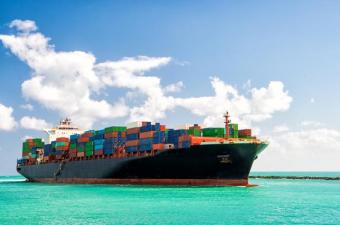
OVERVIEW
John Russell QC and Benjamin Coffer (instructed by Clyde & Co LLP) have obtained permission from the Supreme Court to appeal the controversial Court of Appeal decision in Volcafe v. CSAV [2017] 1 Lloyd's Rep. 32.
The Supreme Court will therefore have the opportunity to clarify the fundamental legal principles which apply in cargo claims, and in particular the burden of proof, the relationship between the defences in Article IV.2 of the Hague Rules and the obligations of the carrier under Article III.2, and the scope of the inherent vice defence.
The Court of Appeal held that, even where the Hague Rules apply, there is a legal burden on a carrier as a bailee to prove that it is not liable for the damage, by reference to the terms of the contract (including the Hague Rules and the defences in Article IV.2). However, the Court went on to hold that the carrier could discharge that burden merely by showing “a prima facie case for the application of the exception of inherent vice” [25]. This appears to suggest that the carrier can shift the legal burden back on to the claimant by something less than proof on the balance of probabilities that an exception applies.
The Supreme Court will consider whether that conclusion was correct, or whether a carrier must go further and prove on the balance of probabilities that the loss does in fact fall within one of the exceptions. That requires consideration of the essential nature of a legal burden of proof, as well as the interaction between Article III.2 of the Hague Rules and the defences in Article IV.2.
The Court will also consider precisely what must be proven to establish the defence of inherent vice. The classic definition of ‘inherent vice’ in the carriage context is that of Gorell Barnes J in The Barcore [1896] P 294 at 297: “[The cargo] deteriorated in condition by its own want of power to bear the ordinary transit in a ship”. In the leading decision on the defence, the House of Lords held that “ordinary transit” means “the kind of transit which the contract requires the carrier to afford” or “the voyage provided for in the contract”: Albacora SRL v. Westcott & Laurance Line Ltd [1966] 2 Lloyd’s Rep 58 per Lord Reid at 59. These dicta suggest that the defence is only available where the cargo is not capable of withstanding the contractual voyage, i.e. a voyage under the conditions of care which the carrier was contractually obliged to provide.
The Court of Appeal held that the Defendant had discharged the burden of proving that the inherent vice defence applied, because “the damage to the cargoes was due to condensation and that the source of the condensation was the coffee beans themselves” [63]. The Court of Appeal therefore appears to have considered that the carrier is only required to prove that the moisture which caused the damage originated within the goods in order to bring itself within the defence. The Supreme Court will be asked to choose between these two possible approaches to the defence.


